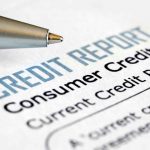 According to the IRS, approximately 122 million people in the U.S. pay some type of income tax every year. Of those, well over 50% pay their taxes at home, using online services like H&R Block or TurboTax. As a result, millions of people become potential victims of identity theft and other online crimes every year. Doing your own taxes is a great way to save money and stay on top of your financial situation, but it is important to protect yourself as well as your personal data. The information you enter on your tax return could give identity thieves the keys to your financial kingdom, and the ability to wreak havoc with your personal and financial life. Before you fill out a single line on your 1040 form, you need to prepare yourself and your computer. Here are five simple ways to protect your personal data and make tax season safer.
According to the IRS, approximately 122 million people in the U.S. pay some type of income tax every year. Of those, well over 50% pay their taxes at home, using online services like H&R Block or TurboTax. As a result, millions of people become potential victims of identity theft and other online crimes every year. Doing your own taxes is a great way to save money and stay on top of your financial situation, but it is important to protect yourself as well as your personal data. The information you enter on your tax return could give identity thieves the keys to your financial kingdom, and the ability to wreak havoc with your personal and financial life. Before you fill out a single line on your 1040 form, you need to prepare yourself and your computer. Here are five simple ways to protect your personal data and make tax season safer.
 Create a strong password for your tax software. This sounds like a no-brainer, but the password you use to protect your tax return should be the strongest of any of your accounts, so take plenty time to think it out and make sure your personal information is as secure as possible. Avoid whole words; those are easy for password-cracking programs to crack. Use a combination of letters, numbers and special characters, and make your password as long as the program permits. You should also make sure your tax return password is unique; do not use the same password, or any variant, anywhere else on the web. “YourName123” and “CurrentMonth123” are examples of unacceptable passwords. Check out these password managers to help you create and manage all of your crucial passwords.
Create a strong password for your tax software. This sounds like a no-brainer, but the password you use to protect your tax return should be the strongest of any of your accounts, so take plenty time to think it out and make sure your personal information is as secure as possible. Avoid whole words; those are easy for password-cracking programs to crack. Use a combination of letters, numbers and special characters, and make your password as long as the program permits. You should also make sure your tax return password is unique; do not use the same password, or any variant, anywhere else on the web. “YourName123” and “CurrentMonth123” are examples of unacceptable passwords. Check out these password managers to help you create and manage all of your crucial passwords.
 Update your security software. Now is the time to make sure your security software is running properly, and that it is up to date. Run a full system scan on your computer to make sure there are no viruses lurking in the background. Install the latest virus signature updates and make sure everything is up to date before you proceed with your tax return. Make sure your security software is set to update automatically, and check the dates to make sure those updates are happening. Free programs like Avast and AVG can be easily installed on your system, and they will protect your computer from viruses that can ultimately steal your personal information.
Update your security software. Now is the time to make sure your security software is running properly, and that it is up to date. Run a full system scan on your computer to make sure there are no viruses lurking in the background. Install the latest virus signature updates and make sure everything is up to date before you proceed with your tax return. Make sure your security software is set to update automatically, and check the dates to make sure those updates are happening. Free programs like Avast and AVG can be easily installed on your system, and they will protect your computer from viruses that can ultimately steal your personal information.
 Secure your wireless network. If you have a wireless network in your home, make sure it is properly locked down, with a strong password and updated security software. Check the security settings on your router and other Wi-Fi equipment, and verify the security of the password before you do any work on your tax return. Again, having a strong password for your wireless router seems like a no-brainer, but a shocking number of people–approximately 79%–do not take the appropriate time to properly configure and secure their routers as soon as they take them out of the box.
Secure your wireless network. If you have a wireless network in your home, make sure it is properly locked down, with a strong password and updated security software. Check the security settings on your router and other Wi-Fi equipment, and verify the security of the password before you do any work on your tax return. Again, having a strong password for your wireless router seems like a no-brainer, but a shocking number of people–approximately 79%–do not take the appropriate time to properly configure and secure their routers as soon as they take them out of the box.
 Be aware of IRS scams. Over the last few years, people have lost millions of dollars and had their identities stolen through multiple IRS scams. The danger does not end after your tax return has been completed. You should educate yourself about potential IRS scams and other dangers, so check the headlines, continuously monitor IRS.gov for scam warnings and alerts, and keep your ears open, particularly during tax season. Always remember that the IRS does not contact taxpayers via email or on the telephone. And they will never demand that you make a payment immediately over the phone. The IRS still communicates with taxpayers the old fashioned way: via U.S. mail. If you receive an email or phone call (or even worse, a text message) purporting to be from the IRS, rest assured it is a scam. Do not provide them with any identifying information or payment whatsoever, no matter what. You should report any potential scams to the IRS, your local police department, or contact the news media to spread the word so others are not victimized.
Be aware of IRS scams. Over the last few years, people have lost millions of dollars and had their identities stolen through multiple IRS scams. The danger does not end after your tax return has been completed. You should educate yourself about potential IRS scams and other dangers, so check the headlines, continuously monitor IRS.gov for scam warnings and alerts, and keep your ears open, particularly during tax season. Always remember that the IRS does not contact taxpayers via email or on the telephone. And they will never demand that you make a payment immediately over the phone. The IRS still communicates with taxpayers the old fashioned way: via U.S. mail. If you receive an email or phone call (or even worse, a text message) purporting to be from the IRS, rest assured it is a scam. Do not provide them with any identifying information or payment whatsoever, no matter what. You should report any potential scams to the IRS, your local police department, or contact the news media to spread the word so others are not victimized.
 Check your credit report. Take the time to review your credit report at least once annually. As an American consumer, you’re allowed one free copy of your credit report from each of the three main credit bureaus, TransUnion, Equifax, and Experian. Better yet, it is best to request one copy from each bureau at different times throughout the year. Doing so will make it easy to monitor your credit in order to see if any unusual accounts have been opened in your name. Monitoring your credit will illustrate every account you have open, the credit limits of each account, as well as the activity (or inactivity) of every account.
Check your credit report. Take the time to review your credit report at least once annually. As an American consumer, you’re allowed one free copy of your credit report from each of the three main credit bureaus, TransUnion, Equifax, and Experian. Better yet, it is best to request one copy from each bureau at different times throughout the year. Doing so will make it easy to monitor your credit in order to see if any unusual accounts have been opened in your name. Monitoring your credit will illustrate every account you have open, the credit limits of each account, as well as the activity (or inactivity) of every account.
Tax time is scary enough with the ever-present threat of audit and the constant confusion surrounding future tax policy. In that environment, the last thing you want is to let your tax return become a threat to your security. The tips listed above can keep you safe and keep your private information out of the wrong hands.